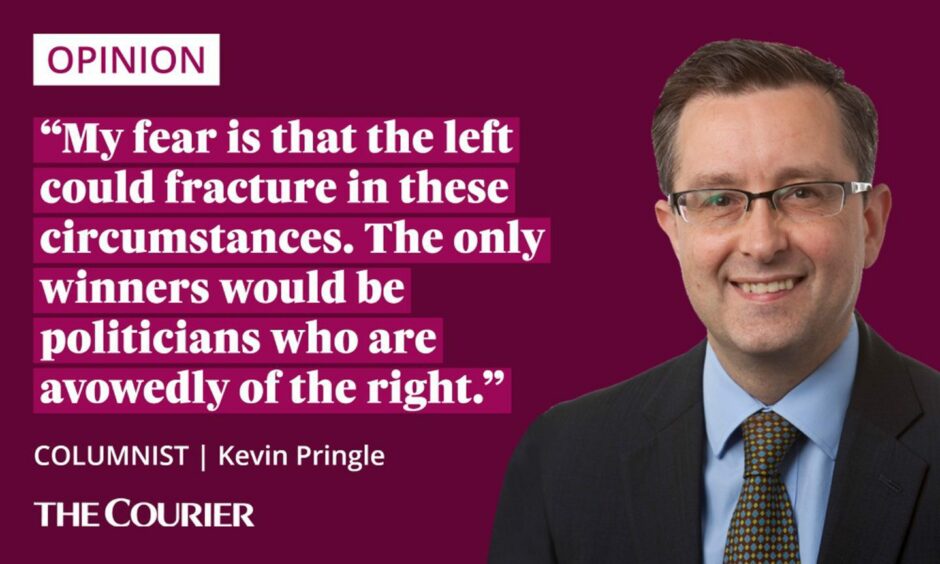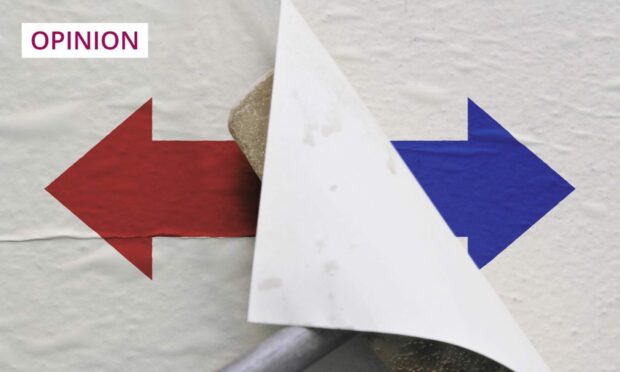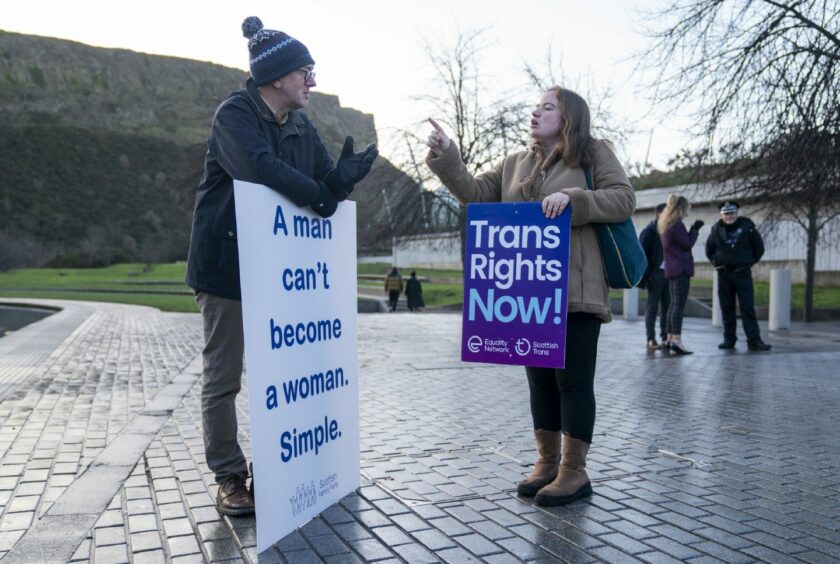Is politics in Scotland changing? Or is it me? There is something about the political discourse and priorities in the Scottish Parliament that I find unfamiliar, but I’ve struggled to put my finger on it. So herewith my stream of troubled consciousness.
One aspect of it is an increasingly prescriptive vocabulary: words and buzz phrases that few outside the political and policy bubbles would ever use.
For example, “progressive” is regularly bandied about. And part of the problem with it is that it brooks no acceptable alternative.
I consider myself to be progressive – who doesn’t? No one is going to champion the cause of regressive politics.
Therefore, the terms of debate are muddied and they become muddled.
Progressive policies are what progressive politicians say they are. And if you’re not in favour of them then, by definition, you must be opposed to progress.
That doesn’t make for much of a dialogue.

I prefer the concepts of “left” and “right” as a way of making sense of politics and evaluating proposals.
Both are valid and both are coherent.
From election to election, they each stand for an overall approach and set of choices that voters can either accept or reject as the way forward for the country.
Progressive and left-wing politics are not the same
My own politics have always been on the left, and I’ve subsumed support for independence into that general stance.
But I recognise that the right is a legitimate way of addressing issues and problems in the economy and wider society.
The left tends to emphasise the importance of collective action and values solidarity. The right at least aspires to a smaller state in social and economic terms, and prioritises freedom of the individual.
The idea that ‘being gay’ is immoral belongs to the Wee Free outposts of the 1920s. Can a progressive Scotland in 2023 really have a leader clinging to 19th century Christian fundamentalist views? It keeps coming back to this…pic.twitter.com/M7xvx4tObo
— Graham Spiers (@GrahamSpiers) March 14, 2023
My concern is that new, more nebulous ways of discussing and understanding politics using terms such as “progressive” are, ironically, confusing and undermining the left.
We should at least recognise that things are changing, instead of lazily assuming or accepting that every measure given the “progressive” badge has anything necessarily to do with left-wing politics.
Politics is changing, we need to keep up
Take the issue of self-identification in relation to Holyrood’s gender recognition reform bill.
This seems to me to be an absolutist form of individualism which, as has been widely discussed, has the potential to clash with and override the collective, sex-based rights of women.
I’d see that as reflecting more of a libertarian ideology than anything else, which is generally regarded as being on the right rather than the left.
Maybe I’m wrong. In any event, it would be helpful to be able to discuss this and other contentious issues on the basis that there is a real and rational alternative comprehension of what is being proposed, instead of critics being dismissed as “not progressive” (with far uglier vocabulary often employed).
There is no doubt that the transgender legislation has caused bitterness and discord among politicians on the left to a far greater extent than is the case on the right, as well as dividing feminists, including in the Labour Party.
A risk is that the elevation of supposedly progressive ideas – which actually come from a political culture of individualism – will bring more proposals to the top of the agenda in Scotland and across the UK that cut across traditional notions of what it is to be left-wing.
Unless we debate this properly and think through what policy measures mean, my fear is that the left could fracture in these circumstances.
The only winners would be politicians who are avowedly of the right.
I’ve no problem with the politics of the future being different from the past. But we should step forward with eyes open and brains engaged.











Conversation